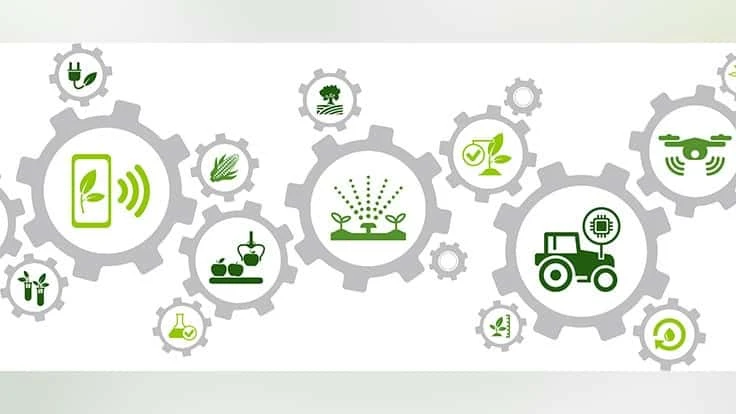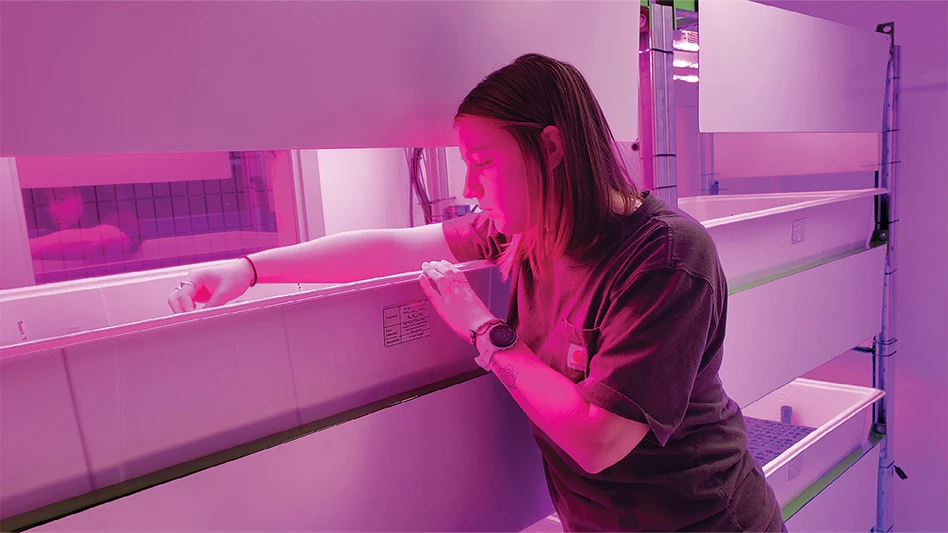
Photo courtesy of Adobe Stock
Located in the heart of Northeast Ohio is Petitti Garden Centers, a family-owned home and garden business that serves the Cleveland, Akron-Canton and Youngstown communities. The chain has nine locations, a revolving door of customers and more than 7,000 varieties of plants and flowers — 95% of which they cultivate themselves.
With four production facilities: 32 acres in Columbia Station, 1,300 acres in Madison, five farms in Lake County and an additional 190 acres nearby, there are about 9 million plants in production and a projected 600,000 customers each year.
Because of this, Petitti does its best to streamline labor and minimize complications. One way they do so is with the help of automation and equipment. Hernie Rosado, production manager at Petitti’s Ridge Manor Nurseries in Lake County, can attest to this.
“The way labor is, we’re always thinking outside the box. We’ve had to come up with a bunch of different systems and make it profitable,” he says. “There’s a lot of equipment that we use in the field and here at the nursery to automate things and make things a bit more efficient for what we have to be hands-on with.”
Rosado began working with the Petitti line in 2008 and in 2013, he was promoted to production manager at Ridge Manor, which handles the container growing. There, he oversees the hiring and firing, growing, shipping and so forth. According to him, the nursery grows about 1.4 million containers for sale each year. Since their production scale is so large, Rosado says they approach things with a “Henry Ford mentality.”
“We really look at the numbers and inefficiencies and Angelo [the owner of Petitti] likes to call them systems. These systems help us succeed so we can be as efficient as possible and keep our costs as low as possible while producing the highest quality products.”
The equipment they use, Rosado says, are grading machines that are completely automated, diggers on field trimmers that can do four row sets of plants at once and weeding machines that can cultivate “30 or so” feet across. For containers, they use turning machines to trim plants for production to avoid trimming them themselves.
Rosado adds that they do a lot of work with agronomics and can run about 100 different mixes at a time with the help of heavy machinery.
“With one swipe of the machine, you’re carrying 50 plants rather than one guy carrying two or four plants at the time,” he says. “We’ve actually set up the nursery in that sense to work with all the machines. We’ve mapped out what sits where so there’s a minimal amount of moving around.”
This process, according to Rosado, is called the lean flow system, which is a mixed bag of methods used to optimize productivity, resources and efficiency.
“That’s where we got the idea of traveling in sections, placing our highest volume crops nearby and evaluating how much time it takes us to do something so we don’t waste any,” he says.
Rosado also says these systems have helped a great deal in shipping. Before, the team placed one order a week for the nine Petitti stores, received a truck on Wednesday and wouldn’t ship the plants until Saturday. After the lean flow methodology was placed, they began sending trucks the same day.
“Same-day orders started to go out Monday. We were shipping by Monday afternoon, finishing up by Wednesday, and our stores were actually able to put in a second order by Saturday.”
The nursery also uses two TVs to track production: the profits they’re working on in each line, the brands that need to be brought in, the count of assignments and the suggested pace requirement. Rosado says the TVs help because they serve as a recap of the production line and also encourage the team to be proactive if there are any issues.
According to Rosado, Ridge Manor does a lot of things differently than other nurseries in Lake County. He says that Angelo Petitti is “constantly reinvesting in the company, taking a step back and looking at what could be better.” In fact, Rosado believes that is why the company has done so well for so long.
“You can never be absolutely happy with what you’re doing. That’s how you get complacent and never move forward,” he says. “That’s kind of our mantra here — we’re constantly looking to change and improve something. We’re constantly looking to improve our production. New equipment and systems is one way we do that.”
Latest from Greenhouse Management
- USDA fires experts on invasive pests, including Asian citrus psyllid, chilli thrips
- CEA Alliance celebrates bipartisan introduction of Supporting Innovation in Agriculture Act
- Dümmen Orange North America celebrating 25th anniversary in 2025
- CEA HERB Part 1: Best management practices for culinary herbs
- Lawsuit challenges new H-2 visa rules
- CEA HERB Part 2: A guide to increasing the sowing density of culinary herbs
- Illinois Landscape Contractors Association changes name to Landscape Illinois
- 2025 Proven Winners Horticulture Scholarship applications now open






